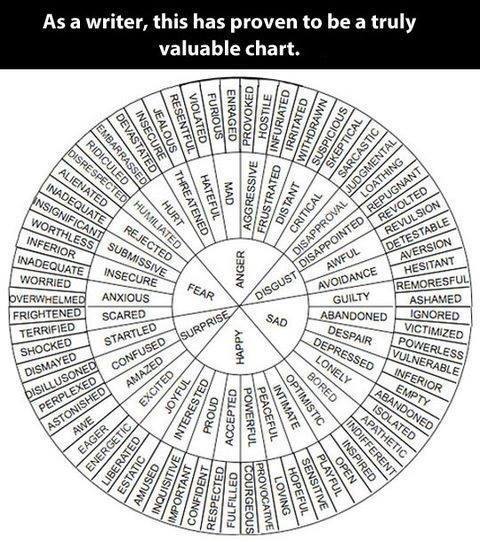These Are Great. It Is Really A Fun Way To Broaden A Character. I Personally Have A File With Bios Of
These are great. It is really a fun way to broaden a character. I personally have a file with bios of all of my main, reoccurring, and generally important characters. For basic side characters I document information like names, titles, skills, appearances, personality, importance to story or characters, relations, jobs, miscellaneous notes, and other mundane information.
For my mains and other important characters I go into a lot more detail. This is my current standard starting info sheet for each VIP:
Name:
Gender:
Age:
Race:
Appearance:
Time with the collective:
Relations:
Skills:
Hobbies:
Job:
Favourite food:
Weapon of choice:
Personality:
Secret:
Fear:
Pleasure:
Origin:
History:
Role in story:
Additional notes:
I will take this form and add to it additional information about the character. Not every character has information in each spot. And there are characters with information that the reader will likely never know about. I personally find it much more enjoyable to write stories around characters then simply creating characters for specific stories. After a while, they just sort of write themselves and you start discovering things about your characters that you would have never guessed. It realy creates some interesting scenes.
Character Development Questions: Hard Mode
Does your character have siblings or family members in their age group? Which one are they closest with?
What is/was your character’s relationship with their mother like?
What is/was your character’s relationship with their father like?
Has your character ever witnessed something that fundamentally changed them? If so, does anyone else know?
On an average day, what can be found in your character’s pockets?
Does your character have recurring themes in their dreams?
Does your character have recurring themes in their nightmares?
Has your character ever fired a gun? If so, what was their first target?
Is your character’s current socioeconomic status different than it was when they were growing up?
Does your character feel more comfortable with more clothing, or with less clothing?
In what situation was your character the most afraid they’ve ever been?
In what situation was your character the most calm they’ve ever been?
Is your character bothered by the sight of blood? If so, in what way?
Does your character remember names or faces easier?
Is your character preoccupied with money or material possession? Why or why not?
Which does your character idealize most: happiness or success?
What was your character’s favorite toy as a child?
Is your character more likely to admire wisdom, or ambition in others?
What is your character’s biggest relationship flaw? Has this flaw destroyed relationships for them before?
In what ways does your character compare themselves to others? Do they do this for the sake of self-validation, or self-criticism?
If something tragic or negative happens to your character, do they believe they may have caused or deserved it, or are they quick to blame others?
What does your character like in other people?
What does your character dislike in other people?
How quick is your character to trust someone else?
How quick is your character to suspect someone else? Does this change if they are close with that person?
How does your character behave around children?
How does your character normally deal with confrontation?
How quick or slow is your character to resort to physical violence in a confrontation?
What did your character dream of being or doing as a child? Did that dream come true?
What does your character find repulsive or disgusting?
Describe a scenario in which your character feels most comfortable.
Describe a scenario in which your character feels most uncomfortable.
In the face of criticism, is your character defensive, self-deprecating, or willing to improve?
Is your character more likely to keep trying a solution/method that didn’t work the first time, or immediately move on to a different solution/method?
How does your character behave around people they like?
How does your character behave around people they dislike?
Is your character more concerned with defending their honor, or protecting their status?
Is your character more likely to remove a problem/threat, or remove themselves from a problem/threat?
Has your character ever been bitten by an animal? How were they affected (or unaffected)?
How does your character treat people in service jobs?
Does your character feel that they deserve to have what they want, whether it be material or abstract, or do they feel they must earn it first?
Has your character ever had a parental figure who was not related to them?
Has your character ever had a dependent figure who was not related to them?
How easy or difficult is it for your character to say “I love you?” Can they say it without meaning it?
What does your character believe will happen to them after they die? Does this belief scare them?
More Posts from Snowwritings and Others
Resources For Describing Characters

Physical Appearance
Arms
Athletic Build
Back
Butts
Cheeks
Chest
Chins
Curvy Build
Ears
Eyebrows
Eyes
Faces
Facial Hair
Feet
Fingernails
Fingers
Hair
Hands
Head
Hips
Jaws
Knees
Legs
Lips
Muscular Build
Neck
Noses
Shoulders
Slender Build
Sickly Build
Skin
Stocky Build
Stomach
Teeth
Toenails
Toes
Underweight Build
Character Traits
Affectionate
Ambitious
Bossy
Brave
Calm
Cautious
Charismatic
Clever
Conceited
Courageous
Creative
Critical
Curious
Determined
Diplomatic
Dishonest
Disorganized
Eccentric
Excitable
Friendly
Funny
Generous
Glamorous
Guarded
Honest
Impulsive
Independent
Intelligent
Just
Kind
Loyal
Manipulative
Mature
Modest
Mysterious
Naïve
Optimistic
Prejudiced
Persistent
Proper
Responsible
Sensitive
Sentimental
Serious
Shy
Reckless
Stingy
Stubborn
Talented
Thoughtful
Thrifty
Visionary
Wise
Witty
Worry Wart
Wounded
Talents & Skills
A Knack for Languages
A Knack for Making Money
A Way with Animals
Archery
Astral Projection
Astrological Divination
Baking
Basic First Aid
Blending In
Carpentry
Charm
ESP (Clairvoyance)
Empathy
Enhanced Hearing
Enhanced Sense of Smell
Enhanced Taste Buds
Farming
Fishing
Foraging
Gaining the Trust of Others
Gaming
Gardening
Good Listening Skills
Haggling
Herbalism
Hospitality
Hot-Wiring a Car
High Pain Tolerance
Knife Throwing
Knowledge of Explosives
Lip-Reading
Lying
Making People Laugh
Mechanically Inclined
Mentalism
Mimicking
Multitasking
Musicality
Organization
Parkour
Photographic Memory
Predicting the Weather
Promotion
Psychokinesis
Reading People
Regeneration
Repurposing
Sculpting
Self-Defense
Sewing
Sharpshooting
Sleight-of-Hand
Strategic Thinking
Strong Breath Control
Super Strength
Survival Skills
Swift-footedness
Talking With The Dead
Throwing One’s Voice
Whittling
Wilderness Navigation
Wrestling
Elemental Abilities
Miscellaneous
Voices
Voice Types
Speech Patterns
Speech Impediment
List of Character Flaws
List of Archetypes
Hairstyles
Describing Body Types & How They Move Around
Secrets To Give Your Character
Support Wordsnstuff!
Request A Writing Help Post/Themed Playlist/Writing Tips!
Send Me Poetry To Feature On Our Instagram!
Receive Updates & Participate In Polls On Our Twitter!
Like us and share on Facebook!
Read More On Our Masterlist & See our Frequently Asked Questions!
Tag What You Want Me To See With #wordsnstuff!
Participate in monthly writing challenges!
Wow, I can personally relate to just about every single example. I am so happy to know I am not alone.
Auditory Processing Problems
• *someone says something* “what?” *repeats themselves* “sorry?” *repeats themselves again* “pardon?”
•"hey, y'see the red thing at the top of the shelf, will you get it?“ “Sorry, what?” “On the sh-” “oh yeah sure, I’ll get it.”
•*doesn’t hear teacher because someone’s pen is making a scratchy sound at the back of the room*
•*replays video 10 ten times to figure out what they’re saying*
•teachers asking, “why do you always stop writing in the middle of a sentence, just write down whatever I’m saying,” followed by the response, “I’m just processing it,” rebuked by, “we’ll stop processing it and just write.”
•*gets really focused on staring out the window and goes through four songs without hearing a single on*
@lovearyn But if I exercise too much and obtain looks that could kill then... 🤔




Legally Blonde (2001) Dir. Robert Luketic
Me: -stares into the void-
The Void: write the next fucking chapter of your fanfic.
I love them! Thank you for the lovely art! ❤
send me a:“♥” and i’ll draw you a picture send me a:“✉” and i’ll handwrite a little message for you send me a:“✎” and i’ll handwrite your url
Keep reading
happy tdov to the trans people who can’t or don’t want to transition, who are in an unsupportive place, or who are still unsure of their identities. you are just as amazing and valid as every other trans person and you deserve just as much love. ♡
writing tip: don’t tell us your character’s backstory. don’t tell us what your character is thinking. don’t tell us what your character is doing. don’t tell us anything. the reader should simply look at a blank page and be suddenly overcome with emotion.
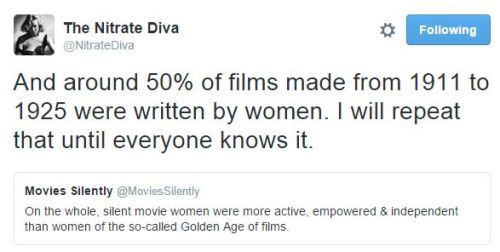
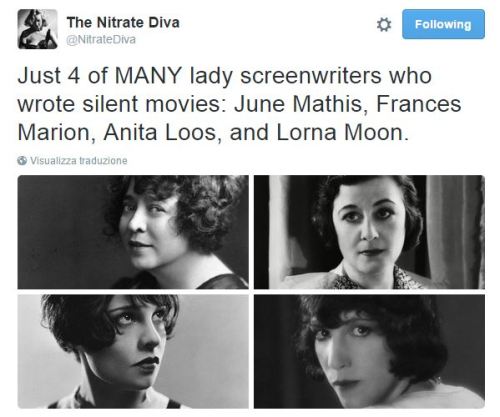
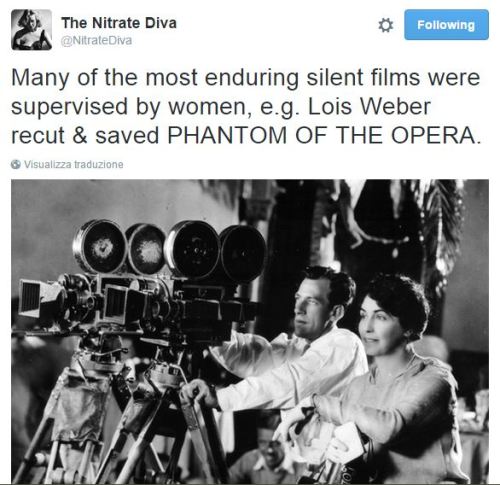


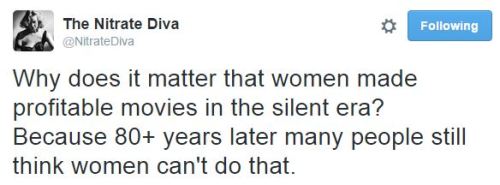
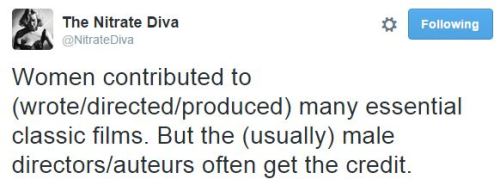
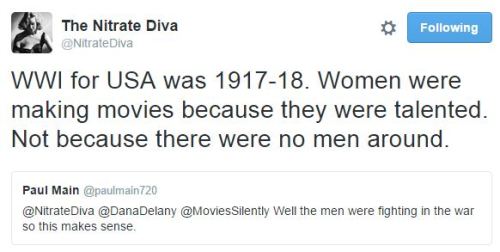
Today’s installment of why“but it has always been like this!” is a bullshit argument: @nitratediva lays down the law about the role of women in early Hollywood
Showing Instead of Telling
@aithlynfreyeaesthetic said:
Hello. I hope you are doing well. I struggle with showing and not telling. Do you have any tips to get better at this? I apologize if you’ve already answered an ask like this.
Hi there, thanks so much for your ask! I don’t have much to say as a prologue-type thing, so let’s jump right into it!
The Difference Between Showing and Telling
“Nick was cold.”
This is telling. When you “tell”, you’re just giving your reader information. There’s not much room for the reader to deduce what’s happening or for you to include too many double meanings (if that’s your intention).
“Nick shivered as the strength of the wind grew, goosebumps appearing on his forearms.”
This is showing. Does it say Nick is cold? No. Could you have guessed that Nick is cold? Probably. When you “show”, you’re doing more than just giving your reader information; you’re giving them clues of sorts that lead them to the knowledge that, in this case, Nick is cold.
The Importance of Showing
In many cases, “telling” is a good way to make your readers believe that you think they’re stupid. Showing helps you give readers the opportunity to discover for themselves, and it also helps them paint a picture in their mind’s eye.
Let’s look at the above example. Nick is cold, sure. But how does he react to being cold? How do we really know that he’s cold, as opposed to just being told? This is where showing comes in; it’s also a great way to include some imagery and for underwriters to boost their word counts.
Is telling ever acceptable?
Yes! Think, for example, of a time jump in your novel. If there’s something that you need to include but that doesn’t play a legitimate role in your story, this is where telling comes in. A week passed and nothing important happened? Write that.
For example, in my current project Smoke Shadows, I have the phrase: “Three days pass in a monotonous routine of…” Why? That’s all I need to write. Nothing important happened in these three days, but I needed my readers to know that three days passed.
It’s probably best to use telling to describe things like this, then jump right back into showing.
Some Tips for Showing
Here are some quick things to think of.
Do you ever state an emotion? Think of how you could let your readers know that your character is feeling this emotion rather than just telling them outright.
What about character traits? Sometimes those don’t need to be said outright, but instead you can pepper your writing with clues. Maybe a short character is always getting their hair ruffled or having people leaning their elbows on their shoulder.
Do your best to avoid forms of “be”. Unless it’s in dialogue or in a few other circumstances, the verb “be” is usually a sign of telling.
How are you describing the world around your character? Instead of saying they’re in a classroom, describe and give clues/description that would lead the reader to understand that the character is in a classroom.
Use your five senses! If you can really put yourself in the character’s point of view for this moment, then you can probably be sure that you’re showing instead of telling.
Read through your writing. Is there anything that seems abrupt, or that makes you feel like you’re just being given information? Unless it’s dialogue, you’re probably reading a bit of “telling”.
Remember that not everything needs to be shown! Trust your own judgment; if you’re telling but you believe that’s what’s best for your work, then don’t change it because of an advice post you’re reading on the internet.
So, that’s all I’ve got for today! If there’s anything else you want to see me write about in my next post, please don’t be afraid to drop a message in my ask! Until next time, much love! <333
-
 eatbitch liked this · 3 days ago
eatbitch liked this · 3 days ago -
 bloodhve reblogged this · 3 days ago
bloodhve reblogged this · 3 days ago -
 p1tgirl reblogged this · 3 days ago
p1tgirl reblogged this · 3 days ago -
 shcrtsweets reblogged this · 3 days ago
shcrtsweets reblogged this · 3 days ago -
 shcrtsweets liked this · 3 days ago
shcrtsweets liked this · 3 days ago -
 jamiey15 liked this · 4 days ago
jamiey15 liked this · 4 days ago -
 outofzonebrotha liked this · 4 days ago
outofzonebrotha liked this · 4 days ago -
 cornerstonc reblogged this · 5 days ago
cornerstonc reblogged this · 5 days ago -
 hannukahmatata reblogged this · 6 days ago
hannukahmatata reblogged this · 6 days ago -
 eternalparadisearchive reblogged this · 1 week ago
eternalparadisearchive reblogged this · 1 week ago -
 jeanzoriley-cod liked this · 1 week ago
jeanzoriley-cod liked this · 1 week ago -
 healcrs liked this · 1 week ago
healcrs liked this · 1 week ago -
 broken3go reblogged this · 1 week ago
broken3go reblogged this · 1 week ago -
 slankyyy-revs-the-world liked this · 1 week ago
slankyyy-revs-the-world liked this · 1 week ago -
 inkdevourer reblogged this · 1 week ago
inkdevourer reblogged this · 1 week ago -
 thesweetestsupervillains reblogged this · 1 week ago
thesweetestsupervillains reblogged this · 1 week ago -
 hannukahmatata reblogged this · 1 week ago
hannukahmatata reblogged this · 1 week ago -
 humanstray reblogged this · 1 week ago
humanstray reblogged this · 1 week ago -
 royalboycybunny reblogged this · 1 week ago
royalboycybunny reblogged this · 1 week ago -
 royalboybun liked this · 1 week ago
royalboybun liked this · 1 week ago -
 hannukahmatata reblogged this · 1 week ago
hannukahmatata reblogged this · 1 week ago -
 unapxlogeticme reblogged this · 1 week ago
unapxlogeticme reblogged this · 1 week ago -
 krystalrage liked this · 1 week ago
krystalrage liked this · 1 week ago -
 velven1th reblogged this · 1 week ago
velven1th reblogged this · 1 week ago -
 devilscheck reblogged this · 1 week ago
devilscheck reblogged this · 1 week ago -
 thesweetestsupervillains reblogged this · 1 week ago
thesweetestsupervillains reblogged this · 1 week ago -
 gloriousxdarkness reblogged this · 1 week ago
gloriousxdarkness reblogged this · 1 week ago -
 theceruleanskye reblogged this · 1 week ago
theceruleanskye reblogged this · 1 week ago -
 hayleylabonairmarshall reblogged this · 1 week ago
hayleylabonairmarshall reblogged this · 1 week ago -
 p2ep liked this · 1 week ago
p2ep liked this · 1 week ago -
 chuchuana reblogged this · 1 week ago
chuchuana reblogged this · 1 week ago -
 ofwondcr reblogged this · 2 weeks ago
ofwondcr reblogged this · 2 weeks ago -
 p4rasit1c reblogged this · 2 weeks ago
p4rasit1c reblogged this · 2 weeks ago -
 starboipersona reblogged this · 2 weeks ago
starboipersona reblogged this · 2 weeks ago -
 inkdevourer reblogged this · 2 weeks ago
inkdevourer reblogged this · 2 weeks ago -
 redrapscalian liked this · 2 weeks ago
redrapscalian liked this · 2 weeks ago -
 d4ggered liked this · 2 weeks ago
d4ggered liked this · 2 weeks ago -
 deceptivemorals reblogged this · 2 weeks ago
deceptivemorals reblogged this · 2 weeks ago -
 chaosmultiverse reblogged this · 3 weeks ago
chaosmultiverse reblogged this · 3 weeks ago -
 lambofdawn reblogged this · 3 weeks ago
lambofdawn reblogged this · 3 weeks ago -
 jessica-newcomb reblogged this · 3 weeks ago
jessica-newcomb reblogged this · 3 weeks ago -
 talvisoldat liked this · 3 weeks ago
talvisoldat liked this · 3 weeks ago -
 shinobinvku liked this · 3 weeks ago
shinobinvku liked this · 3 weeks ago -
 0fcourage reblogged this · 3 weeks ago
0fcourage reblogged this · 3 weeks ago -
 occultamonstri reblogged this · 3 weeks ago
occultamonstri reblogged this · 3 weeks ago -
 gcldess reblogged this · 3 weeks ago
gcldess reblogged this · 3 weeks ago -
 starkfauxpas reblogged this · 3 weeks ago
starkfauxpas reblogged this · 3 weeks ago -
 identitysolved reblogged this · 3 weeks ago
identitysolved reblogged this · 3 weeks ago -
 snnynatural reblogged this · 3 weeks ago
snnynatural reblogged this · 3 weeks ago -
 antiqsvchotic reblogged this · 3 weeks ago
antiqsvchotic reblogged this · 3 weeks ago

Sofia. She/her. Writer, thinker, listener, trans woman, and supporter of the Oxford Comma.
172 posts
